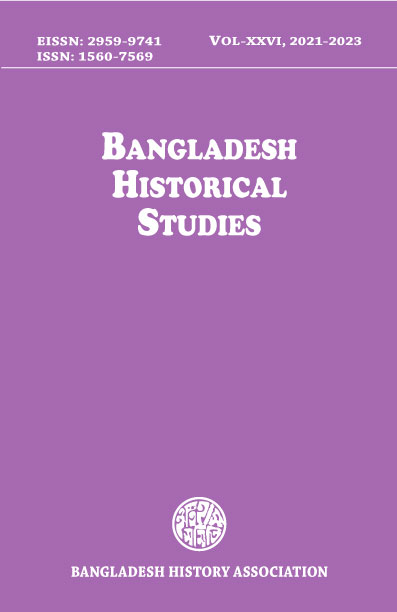Oral Rehydration Therapy (ORT) and the Inventive Measures in Bangladesh, 1968-1990

Oral Rehydration Therapy (ORT) and the Inventive Measures in Bangladesh, 1968-1990
DR. MOHAMMAD BILAL HOSSAIN
Associate Professor, Department of History, Jagannath University.
https://doi.org/10.59815/bhs.vol2607
Abstract: The development of Oral Rehydration Therapy (ORT) is deeply rooted in the advancement of technology, understanding of how things work, and the changing needs of people. While early trials of ORT showed that glucose, sodium, and electrolytes could help treat fluid loss in diseases like cholera and diarrhea, it was just the beginning of a prolonged journey. Progress in this field has been driven by adapting to new technologies, discovering better ways to help patients, and ensuring widespread awareness and adoption, particularly in Bangladesh. It has been three-fold: scientific discoveries and precise measurement techniques, the integration of medical professionals with these innovations, and the dissemination of knowledge to empower individuals in preparing and administering ORS. These efforts were carried out through laboratory testing and operational research at the field level. The successful trial of oral rehydration solution (ORS) led to the publication of an article titled "Oral Maintenance Therapy for Cholera in Adults" in The Lancet in August 1968. This publication underscored the rationale behind ORT's emergence, initially driven by the scarcity of intravenous saline and its technical complexities. Today, ORS stands as the mainstream solution for rehydrating dehydrated patients. This lengthy journey was fraught with challenges and the continuous search for new approaches to achieve the ultimate goal. At every turn, individuals and organizations in Bangladesh assumed the responsibility of upholding this mission, establishing the country as a pioneer in the field.
Key Words: ORT, ORS, Invention, Cholera, Diarrhea, PSCRL, Bangladesh, ICDDR,B, BRAC.
VIEW FULL ARTICLES


